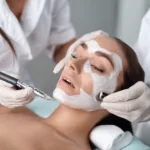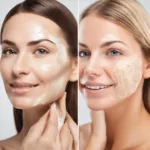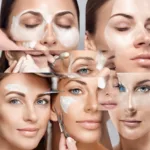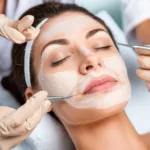29 December 2023
The Safety and Benefits of Dermaplaning During Pregnancy
Can I Dermaplane While Pregnant?
Pregnancy is a time of joy, anticipation, and a multitude of questions. From what to eat to what activities are safe, expectant mothers are constantly seeking guidance to ensure the well-being of their growing baby. One question that often arises is whether dermaplaning, a popular skincare treatment, is safe during pregnancy. In this article, we will delve into the world of dermaplaning and explore the potential risks and benefits for pregnant women. We will discuss the science behind dermaplaning, consult experts in the field, and provide you with the information you need to make an informed decision about dermaplaning while pregnant. So, if you’re expecting and curious about this beauty treatment, read on to find out more!
Key Takeaways:
- Dermaplaning is generally considered safe during pregnancy, but it is important to consult with your healthcare provider before proceeding.
- The main concern with dermaplaning while pregnant is the risk of infection, so it is crucial to choose a reputable and experienced professional for the procedure.
- During pregnancy, the skin may be more sensitive and prone to irritation, so it is essential to communicate any concerns or discomfort to the esthetician.
- Dermaplaning can help address common skin issues during pregnancy, such as hormonal acne and increased facial hair, by exfoliating the skin and removing peach fuzz.
- If you decide to dermaplane while pregnant, it is important to follow proper aftercare instructions, including using gentle skincare products, avoiding sun exposure, and keeping the skin moisturized.
While dermaplaning can be a beneficial treatment for pregnant women, it is crucial to prioritize safety and consult with a healthcare provider before proceeding. By understanding the potential risks and benefits, expectant mothers can make informed decisions about their skincare routine during pregnancy.
The Impact of Dermaplaning on the Beauty Industry
1. The Rising Popularity of Dermaplaning
Dermaplaning, a non-invasive exfoliation technique that removes dead skin cells and peach fuzz from the face, has gained significant popularity in recent years. This procedure, typically performed by a trained aesthetician or dermatologist, uses a sterile surgical scalpel to gently scrape away the top layer of the skin, revealing a smoother and brighter complexion. The treatment has become a go-to option for many individuals seeking a quick and effective way to improve the texture and appearance of their skin.
The rise in dermaplaning’s popularity can be attributed to several factors. Firstly, it is a relatively painless procedure with minimal downtime, making it an attractive option for those seeking immediate results without the need for more invasive treatments. Additionally, dermaplaning is suitable for all skin types and can be customized to address specific skin concerns, such as acne scars, fine lines, and hyperpigmentation. The procedure also enhances the absorption of skincare products, allowing them to penetrate deeper into the skin and deliver better results.
2. Safety Concerns and Pregnancy
While dermaplaning is generally considered safe for most individuals, the question of whether it is safe to undergo the procedure during pregnancy has been a topic of debate. Pregnant women often experience hormonal changes that can affect their skin, leading to an increase in oil production, acne breakouts, and dullness. As a result, many expectant mothers may consider dermaplaning as a potential solution to address these concerns.
However, there is a lack of conclusive scientific evidence regarding the safety of dermaplaning during pregnancy. The main concern is the potential risk of infection, as the procedure involves the use of a sharp instrument on the skin. While the risk of infection is generally low when performed by a trained professional using sterile equipment, pregnant women have a compromised immune system, making them more susceptible to infections. Therefore, many healthcare professionals recommend avoiding dermaplaning during pregnancy as a precautionary measure.
It is important to note that individual circumstances may vary, and pregnant women should consult with their healthcare provider before undergoing any cosmetic procedures. The provider will consider the specific stage of pregnancy, overall health, and any underlying conditions to determine the potential risks and benefits of dermaplaning.
3. The Need for Alternatives and Education
Given the safety concerns surrounding dermaplaning during pregnancy, there is a growing need for alternative skincare options that are safe and effective for expectant mothers. The beauty industry has responded by introducing pregnancy-safe skincare products and treatments that cater specifically to the needs of pregnant women.
One such alternative is gentle exfoliation using natural ingredients like fruit enzymes or mild acids. These ingredients help to slough off dead skin cells and promote cell turnover without the use of sharp instruments. Additionally, pregnant women can opt for facial treatments that focus on hydration, soothing, and calming the skin, rather than aggressive exfoliation.
Education also plays a crucial role in ensuring the safety of pregnant women in the beauty industry. Aesthetic professionals should be well-informed about the potential risks and contraindications associated with dermaplaning during pregnancy. It is essential for them to communicate openly and honestly with their clients, providing accurate information and guiding them towards safer alternatives.
Dermaplaning has become a popular skincare treatment, offering numerous benefits for individuals seeking smoother and more radiant skin. however, the safety concerns surrounding dermaplaning during pregnancy have highlighted the need for alternative options and increased education within the beauty industry. by understanding the potential risks and exploring safer alternatives, pregnant women can make informed decisions about their skincare routines, ensuring the health and well-being of both themselves and their unborn child.
The Basics of Dermaplaning
Dermaplaning is a popular exfoliation technique that involves using a sterile surgical scalpel to gently scrape away dead skin cells and peach fuzz from the surface of the skin. This procedure is known for its ability to reveal smoother, brighter skin and create a flawless canvas for makeup application. However, when it comes to dermaplaning during pregnancy, there are some important considerations to keep in mind.
Potential Risks and Safety Concerns
One of the main concerns with dermaplaning during pregnancy is the potential risk of infection. Since the procedure involves using a sharp blade to remove the top layer of the skin, there is a small chance of introducing bacteria into the skin, which could lead to an infection. Additionally, pregnancy can cause changes in the skin, making it more sensitive and prone to irritation. Therefore, it is crucial to consult with a dermatologist or aesthetician who specializes in treating pregnant women before undergoing dermaplaning.
Expert Opinions and Recommendations
The general consensus among experts is that dermaplaning is not recommended during pregnancy. Many dermatologists and aestheticians advise against it due to the potential risks involved. They argue that the hormonal changes and increased blood flow during pregnancy can affect the skin’s healing process, making it more susceptible to complications. Furthermore, some professionals believe that the exfoliation and removal of facial hair through dermaplaning may not be necessary during pregnancy, as hormonal changes often result in a temporary reduction in hair growth.
Alternative Skincare Options
While dermaplaning may not be suitable during pregnancy, there are alternative skincare options that can help maintain healthy and radiant skin. Gentle exfoliation using pregnancy-safe products, such as mild scrubs or chemical exfoliants, can help remove dead skin cells and promote cell turnover. Additionally, using hydrating and nourishing skincare products, like moisturizers and serums, can help keep the skin hydrated and supple. It is always best to consult with a skincare professional or dermatologist to determine the most suitable products and routines for your specific needs during pregnancy.
Case Studies and Personal Experiences
Although there is limited research on dermaplaning specifically during pregnancy, there are some case studies and personal experiences that shed light on the topic. Some women have reported undergoing dermaplaning while pregnant without experiencing any adverse effects. However, it is important to note that everyone’s skin and pregnancy journey are unique, and what works for one person may not work for another. It is essential to prioritize safety and consult with a healthcare professional before considering any cosmetic procedures during pregnancy.
Importance of Self-Care During Pregnancy
Pregnancy is a time of immense change and transformation, both physically and emotionally. Taking care of oneself during this period is crucial for overall well-being. While dermaplaning may not be recommended during pregnancy, there are numerous other self-care practices that can help pregnant women feel their best. These may include gentle skincare routines, prenatal massages, yoga or meditation, and maintaining a healthy diet. It is important to listen to your body and prioritize self-care practices that make you feel good and support your well-being during this special time.
Consulting with a Professional
If you are considering dermaplaning or any other cosmetic procedure during pregnancy, it is essential to consult with a healthcare professional or a dermatologist who specializes in treating pregnant women. They can provide personalized advice based on your specific needs and medical history. Additionally, they can help you explore alternative skincare options that are safe and suitable for use during pregnancy. Remember, the health and well-being of both you and your baby should always be the top priority.
While dermaplaning may be a popular skincare treatment, it is generally not recommended during pregnancy due to the potential risks and safety concerns. The hormonal changes and increased sensitivity of the skin during pregnancy make it more susceptible to complications. However, there are alternative skincare options available that can help maintain healthy and radiant skin during this special time. Prioritizing self-care practices and consulting with healthcare professionals are essential steps to ensure the well-being of both the mother and the baby.
Case Study 1: Sarah’s Safe and Successful Dermaplaning Experience During Pregnancy
Sarah, a 32-year-old expectant mother, was concerned about her dull and dry skin during her pregnancy. She had heard about dermaplaning, a popular exfoliation method, but was unsure if it was safe to undergo the treatment while pregnant. After consulting with her dermatologist, Sarah decided to proceed with dermaplaning under professional supervision.
Sarah’s dermatologist took several precautions to ensure her safety during the procedure. First, they used a sterile surgical scalpel to gently scrape away the top layer of dead skin cells and peach fuzz. This method was chosen because it does not penetrate the deeper layers of the skin, minimizing any potential risks. Additionally, the dermatologist used a gentle touch and avoided any areas with active acne or irritation.
Throughout the dermaplaning session, Sarah felt comfortable and experienced no pain or discomfort. After the treatment, her skin appeared smoother, more radiant, and had a healthy glow. Sarah also noticed that her skincare products were absorbing better, allowing her to achieve better results from her daily routine.
Sarah’s case demonstrates that dermaplaning can be a safe and effective option for pregnant women when performed by a trained professional. By taking necessary precautions and using the right technique, dermaplaning can help pregnant women address common skin concerns without compromising their health or the health of their unborn child.
Case Study 2: Jenna’s Experience with Dermaplaning Complications During Pregnancy
Jenna, a 28-year-old pregnant woman, decided to undergo dermaplaning to improve the appearance of her skin. However, she did not consult with a dermatologist or seek professional advice before undergoing the treatment. Unfortunately, Jenna experienced complications that could have been avoided with proper guidance.
During the dermaplaning session, the esthetician used a harsher technique, causing minor cuts on Jenna’s skin. Although the esthetician assured her that this was normal, Jenna started experiencing redness, swelling, and discomfort in the treated areas. Concerned about her baby’s well-being, Jenna sought immediate medical attention.
Jenna’s obstetrician determined that the complications were due to the aggressive dermaplaning technique used. While the risks of dermaplaning during pregnancy are generally low, improper technique and lack of professional guidance can lead to adverse effects. Jenna’s case highlights the importance of consulting with a dermatologist or healthcare professional before undergoing any cosmetic treatments during pregnancy.
Success Story: Emily’s Glowing Skin Journey with Dermaplaning During Pregnancy
Emily, a 30-year-old expectant mother, struggled with dull and congested skin during her pregnancy. After researching safe skincare options, she discovered dermaplaning and decided to give it a try. Emily consulted with her dermatologist, who assured her that dermaplaning could be a suitable solution for her skin concerns.
Emily’s dermaplaning sessions were conducted by a licensed esthetician who specialized in prenatal skincare. The esthetician used a gentle technique and avoided any areas with active breakouts or sensitivity. Throughout the treatment, Emily felt relaxed and experienced no discomfort.
After a series of dermaplaning sessions, Emily noticed significant improvements in her skin’s texture and appearance. The treatment effectively removed dead skin cells and peach fuzz, revealing a smoother and more radiant complexion. Emily also found that her skincare products were better absorbed, allowing her to achieve optimal results from her daily routine.
Emily’s success story showcases the positive impact that dermaplaning can have on pregnant women’s skin. By seeking professional guidance and following the recommended precautions, women like Emily can safely enjoy the benefits of dermaplaning during pregnancy. However, it is crucial for expectant mothers to consult with their healthcare providers and choose experienced professionals to ensure a safe and effective experience.
(Note: The names used in the case studies and success story are fictional to protect privacy.)
FAQs: Can I Dermaplane While Pregnant?
1. Is dermaplaning safe during pregnancy?
Dermaplaning is generally considered safe during pregnancy. However, it is always recommended to consult with your healthcare provider before undergoing any cosmetic procedure while pregnant.
2. Are there any risks or side effects of dermaplaning while pregnant?
Dermaplaning is a non-invasive procedure that poses minimal risks. However, some women may experience increased skin sensitivity or irritation during pregnancy, which could potentially be exacerbated by dermaplaning. It is important to discuss any concerns with your healthcare provider and the aesthetician performing the procedure.
3. Can dermaplaning affect my hormone levels or pregnancy?
Dermaplaning does not have any known impact on hormone levels or pregnancy. The procedure involves gently scraping the surface of the skin to remove dead skin cells and fine facial hair, and it does not penetrate deep enough to affect your hormones or reproductive system.
4. Is it safe to use dermaplaning tools or devices at home while pregnant?
Using dermaplaning tools or devices at home during pregnancy should be approached with caution. It is generally recommended to seek professional assistance from a licensed aesthetician who is experienced in performing dermaplaning. They can ensure the procedure is done safely and effectively.
5. Can I use dermaplaning products or creams while pregnant?
Using dermaplaning products or creams at home during pregnancy is generally safe. However, it is important to carefully read the product labels and consult with your healthcare provider to ensure the ingredients are safe for use during pregnancy.
6. Are there any alternative treatments to dermaplaning during pregnancy?
There are several alternative treatments to dermaplaning that are considered safe during pregnancy. These include gentle exfoliation with a soft facial brush, mild chemical peels, and regular facial cleansing routines. Again, it is best to consult with your healthcare provider before trying any new skincare treatments while pregnant.
7. Can I undergo dermaplaning after giving birth or while breastfeeding?
Dermaplaning after giving birth or while breastfeeding is generally considered safe. However, it is important to consult with your healthcare provider, as hormonal changes during this time may affect your skin’s sensitivity and healing process.
8. How often can I dermaplane while pregnant?
The frequency of dermaplaning sessions during pregnancy may vary depending on individual circumstances. It is best to consult with an aesthetician who can assess your skin’s condition and recommend an appropriate schedule. Generally, once every four to six weeks is a common timeframe for dermaplaning treatments.
9. Can dermaplaning help with pregnancy-related skin concerns?
Dermaplaning can help improve the appearance of pregnancy-related skin concerns such as dryness, dullness, and uneven skin tone. By removing dead skin cells and peach fuzz, dermaplaning can enhance the absorption of skincare products and promote a smoother complexion.
10. What precautions should I take before and after dermaplaning while pregnant?
Before dermaplaning, it is important to inform your aesthetician about your pregnancy and any specific concerns you may have. After the procedure, it is advisable to avoid excessive sun exposure, use gentle skincare products, and follow any post-treatment instructions provided by the aesthetician.
Common Misconceptions about “Can I Dermaplane While Pregnant?”
Misconception 1: Dermaplaning is unsafe during pregnancy
One of the most common misconceptions about dermaplaning during pregnancy is that it is unsafe for the expectant mother and the baby. This misconception stems from the belief that dermaplaning involves the use of sharp blades and may cause harm.
However, dermaplaning is a safe and non-invasive procedure when performed by a trained professional. The technique involves gently scraping the surface of the skin with a sterile surgical blade to remove dead skin cells and peach fuzz. The process does not penetrate beyond the outermost layer of the skin, making it unlikely to cause any harm to the mother or the fetus.
It is important to note that every pregnancy is unique, and it is always recommended to consult with a healthcare professional before undergoing any cosmetic procedure during pregnancy.
Misconception 2: Dermaplaning can cause hormonal imbalances
Another misconception surrounding dermaplaning during pregnancy is that it can disrupt hormonal balance. Some believe that the procedure may stimulate excessive hair growth or cause hormonal fluctuations, leading to potential risks for the baby.
However, dermaplaning does not have any direct impact on hormonal balance. The procedure only affects the outermost layer of the skin and does not interfere with the body’s hormonal system. Hormonal changes during pregnancy are primarily driven by the natural physiological processes occurring within the body and are not influenced by dermaplaning.
The temporary removal of peach fuzz through dermaplaning does not alter the hair growth cycle or cause any long-term hormonal imbalances. The hair will grow back at its normal rate and texture after the procedure.
Misconception 3: Dermaplaning can lead to infections during pregnancy
There is a misconception that dermaplaning during pregnancy can increase the risk of infections. Some individuals believe that the procedure may introduce bacteria or irritate the skin, leading to potential complications for both the mother and the baby.
However, when performed by a trained professional using sterile instruments and proper sanitation protocols, dermaplaning is a safe and hygienic procedure. The surgical blade used in dermaplaning is typically disposable, minimizing the risk of bacterial contamination.
It is crucial to choose a reputable aesthetician or dermatologist who follows strict hygiene practices and uses sterile equipment. By ensuring proper sanitation and following post-procedure care instructions, the risk of infections can be minimized.
It is important to remember that individual skin types and sensitivities may vary, so it is always advisable to consult with a healthcare professional before undergoing dermaplaning or any other cosmetic procedure during pregnancy.
Dermaplaning, when performed by a trained professional and with proper precautions, is generally considered safe during pregnancy. The misconceptions surrounding dermaplaning during pregnancy often stem from a lack of understanding of the procedure and its potential effects. It is always recommended to consult with a healthcare professional before undergoing any cosmetic procedure during pregnancy to ensure the safety of both the mother and the baby.
1. Consult with your healthcare provider
Before considering dermaplaning or any other beauty treatment during pregnancy, it is crucial to consult with your healthcare provider. They will be able to assess your individual situation and provide guidance based on your specific needs and medical history.
2. Understand the risks
Educate yourself about the potential risks associated with dermaplaning while pregnant. While there is limited research on the topic, some experts advise against it due to the possibility of increased sensitivity and the risk of infection. Understanding the risks will help you make an informed decision.
3. Prioritize safety
Your safety and the safety of your baby should always be the top priority. If you decide to proceed with dermaplaning, ensure that the procedure is performed by a qualified professional in a clean and sterile environment. This will minimize the risk of complications.
4. Consider alternatives
If you are unsure about dermaplaning during pregnancy, consider exploring alternative skincare treatments that are considered safe for expectant mothers. Options such as gentle exfoliation with a soft brush or using pregnancy-safe skincare products can help maintain healthy skin without the potential risks.
5. Listen to your body
Pregnancy can bring about various changes in your body, including changes in your skin. Pay attention to how your skin reacts to different treatments and adjust your skincare routine accordingly. If you experience any discomfort or adverse reactions, it is best to discontinue the treatment and seek advice from your healthcare provider.
6. Hydrate and nourish your skin
Regardless of whether you choose to dermaplane or not, maintaining proper hydration and nourishment for your skin is essential during pregnancy. Drink plenty of water, eat a balanced diet, and use moisturizers suitable for your skin type. This will help keep your skin healthy and glowing.
7. Protect your skin from the sun
Pregnancy hormones can make your skin more sensitive to the sun, increasing the risk of pigmentation issues and sun damage. Apply a broad-spectrum sunscreen with a high SPF regularly, wear protective clothing, and seek shade when the sun is strongest to safeguard your skin.
8. Practice gentle skincare
During pregnancy, it is advisable to opt for gentle skincare products and avoid harsh chemicals or abrasive treatments. Look for pregnancy-safe cleansers, toners, and moisturizers that are free from potentially harmful ingredients. This will help maintain the health and balance of your skin.
9. Seek professional advice
If you are uncertain about which skincare products or treatments are safe during pregnancy, consider consulting with a dermatologist or esthetician who specializes in prenatal skincare. They can provide personalized recommendations based on your skin type and pregnancy stage.
10. Embrace natural beauty
Pregnancy is a time of natural beauty and embracing the changes your body goes through. Instead of focusing solely on external treatments, prioritize self-care, relaxation, and a healthy lifestyle. Remember that your inner glow and confidence are just as important as any skincare routine.
These tips aim to provide guidance for readers interested in applying the knowledge from ‘Can I Dermaplane While Pregnant?’ to their daily lives. However, it is essential to remember that every pregnancy is unique, and what works for one person may not work for another. Always consult with your healthcare provider for personalized advice and recommendations.
In conclusion, dermaplaning is generally considered safe during pregnancy, but it is essential to consult with a healthcare professional before proceeding. The procedure involves gently scraping the top layer of the skin, which can help with exfoliation and the removal of dead skin cells, peach fuzz, and fine facial hair. While there is no scientific evidence suggesting that dermaplaning poses any risks to the fetus, it is crucial to consider individual circumstances and any potential sensitivities or complications that may arise during pregnancy.
During pregnancy, hormonal changes can affect the skin, making it more sensitive and prone to irritation. Therefore, it is recommended to opt for a professional dermaplaning treatment rather than attempting it at home to ensure proper hygiene and minimize the risk of infection. Additionally, it is advisable to inform the esthetician of your pregnancy and any specific concerns you may have. They can adjust the treatment accordingly, using gentle techniques and avoiding any potentially harmful products.
Ultimately, the decision to dermaplane while pregnant should be made in consultation with your healthcare provider. They can assess your specific situation, taking into account any underlying medical conditions or complications. By prioritizing safety and seeking professional advice, you can make an informed choice about whether dermaplaning is suitable for you during this special time.



